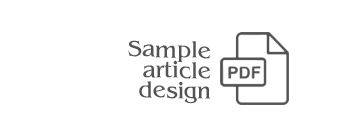THE ROLE OF THE TEACHER IN THE DEVELOPMENT OF FACT-CHECKING SKILLS IN 7TH GRADE STUDENTS STUDYING CHEMISTRY
DOI:
https://doi.org/10.55956/JVQQ3713Keywords:
Fact-checking, schoolchildren, chemistry, the method of fact-checking, the development of critical thinking skillAbstract
This article examines the role of a teacher in the formation of fact-checking skills among schoolchildren in the context of their training in chemistry. In the era of the modern information society, where access to a huge amount of information is easily accessible, the ability to analyze and verify facts becomes absolutely critical.
This article discusses a variety of methods that teachers can use to integrate fact-checking into their curricula. These methods include the development of lessons aimed at assessing the reliability of sources, the analysis of experimental data and a critical review of the literature. Teachers, paying attention to examples of unreliable information in chemical publications, can encourage students to develop skills of critical evaluation of information.
The article focuses on the practical aspects of teaching fact-checking, including the use of modern technologies and online resources to verify the validity of facts.
The study highlights the need for constant updating of teaching methods to meet the changing information environment. The development of fact-checking skills among schoolchildren not only contributes to their successful education in the field of chemistry, but also helps to form the foundations of critical thinking and responsible information consumption.
References
1. Wineburg, S., McGrew, S., Breakstone, J., Ortega, T. Evaluating Information: The Cornerstone of Civic Online Reasoning. Stanford Digital Repository [Text] //Graduate School of Education Open Archive. -2016. – С.1-29.
2. Непряхин, Н. Анатомия заблуждений: Большая книга по критическому мышлению [Текст] / Н. Непряхин. - М.: Литрес, 2020. – 641с.
3. Сержевская, Л. Фактчекинг. Чеховы. Изнанка мифа [Текст] / Л. Сержевская. - М.: Литрес, 2021. – 221с.
4. Gilbert, J. K. On the Nature of “Context” in Chemical Education. International Journal of Science Education[Text] / International journal of science education. - 2006. – No.28(9). - С.957–976.
5. Фактчекинг [Электронный ресурс]. – Режим доступа: https://www.unisender.com/ru/glossary/chto-takoe-faktcheking//. Дата обращения: 21.02.2023
6. Правила фактчекинга: какой информации можно доверять, а какой – не стоит [Электронный ресурс]. – Режим доступа: https://1ps.ru/blog/texts/2021/pravila-faktchekinga-kakoj-informaczii-mozhno-doveryat-a-kakoj-%E2%80%93-ne-stoit// . Дата обращения: 28.10.2021
7. Johnstone, A. H. Why is science difficult to learn? Things are seldom what they seem [Текст] // Journal of Computer Assisted Learning. - 1991. – No. 7(2). – С.75–83.
8. Nurrenbern, S. C., Pickering, M. Concept Learning versus Problem Solving: Is There a Difference? [Текст] // Journal of Chemical Education. - 1987. – No.64(6). – С.508–510.
9. Гороховский, А. Практическое пособие по фактчеку учебное пособие [Текст] / А. Гороховский. - MediaNet и Factcheck.kz. – 2018.
10. План урока: основные критерии при планировании урока в соответствии с новым ГОСО [Электронный ресурс]. – Режим доступа: https://edu.mcfr.kz/article/4127-plan-uroka-osnovnye-kriterii-pri-planirovanii-uroka-v-sootvetstvii-s-novym-goso.Дата обращения: 7.10. 2021
Downloads
Published online
Issue
Section
License

This work is licensed under a Creative Commons Attribution-NonCommercial 4.0 International License.

